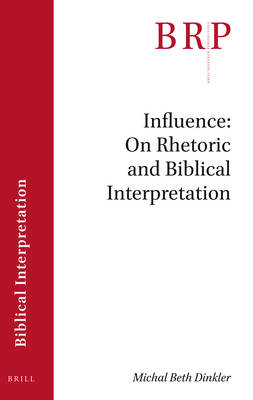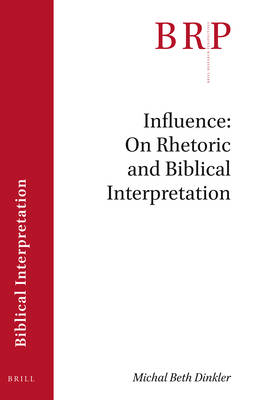
Je cadeautjes zeker op tijd in huis hebben voor de feestdagen? Kom langs in onze winkels en vind het perfecte geschenk!
- Afhalen na 1 uur in een winkel met voorraad
- Gratis thuislevering in België vanaf € 30
- Ruim aanbod met 7 miljoen producten
Je cadeautjes zeker op tijd in huis hebben voor de feestdagen? Kom langs in onze winkels en vind het perfecte geschenk!
- Afhalen na 1 uur in een winkel met voorraad
- Gratis thuislevering in België vanaf € 30
- Ruim aanbod met 7 miljoen producten
Zoeken
Omschrijving
The influence of the Bible in human history is staggering. Biblical texts have inspired grand social advancements, intellectual inquiries, and aesthetic achievements. Yet, the Bible has also given rise to hatred, violence, and oppression - often with deadly consequences. How does the Bible exert such extraordinary influence? The short answer is rhetoric. In Influence: On Rhetoric and Biblical Interpretation, Michal Beth Dinkler demonstrates that, contrary to popular opinion, rhetoric is not inherently "empty" or disingenuous. Rhetoric refers to the art of persuasion. Dinkler argues that the Bible is by nature rhetorical, and that understanding the art of persuasion is therefore vital for navigating biblical literature and its interpretation. Influence invites readers to think critically about biblical rhetoric and the rhetoric of biblical interpretation, and offers a clear and compelling guide for how to do so.
Specificaties
Betrokkenen
- Auteur(s):
- Uitgeverij:
Inhoud
- Aantal bladzijden:
- 112
- Taal:
- Engels
- Reeks:
- Reeksnummer:
- nr. 4
Eigenschappen
- Productcode (EAN):
- 9789004461413
- Verschijningsdatum:
- 25/03/2021
- Uitvoering:
- Paperback
- Formaat:
- Trade paperback (VS)
- Afmetingen:
- 155 mm x 235 mm
- Gewicht:
- 202 g

Alleen bij Standaard Boekhandel
+ 286 punten op je klantenkaart van Standaard Boekhandel
Beoordelingen
We publiceren alleen reviews die voldoen aan de voorwaarden voor reviews. Bekijk onze voorwaarden voor reviews.









